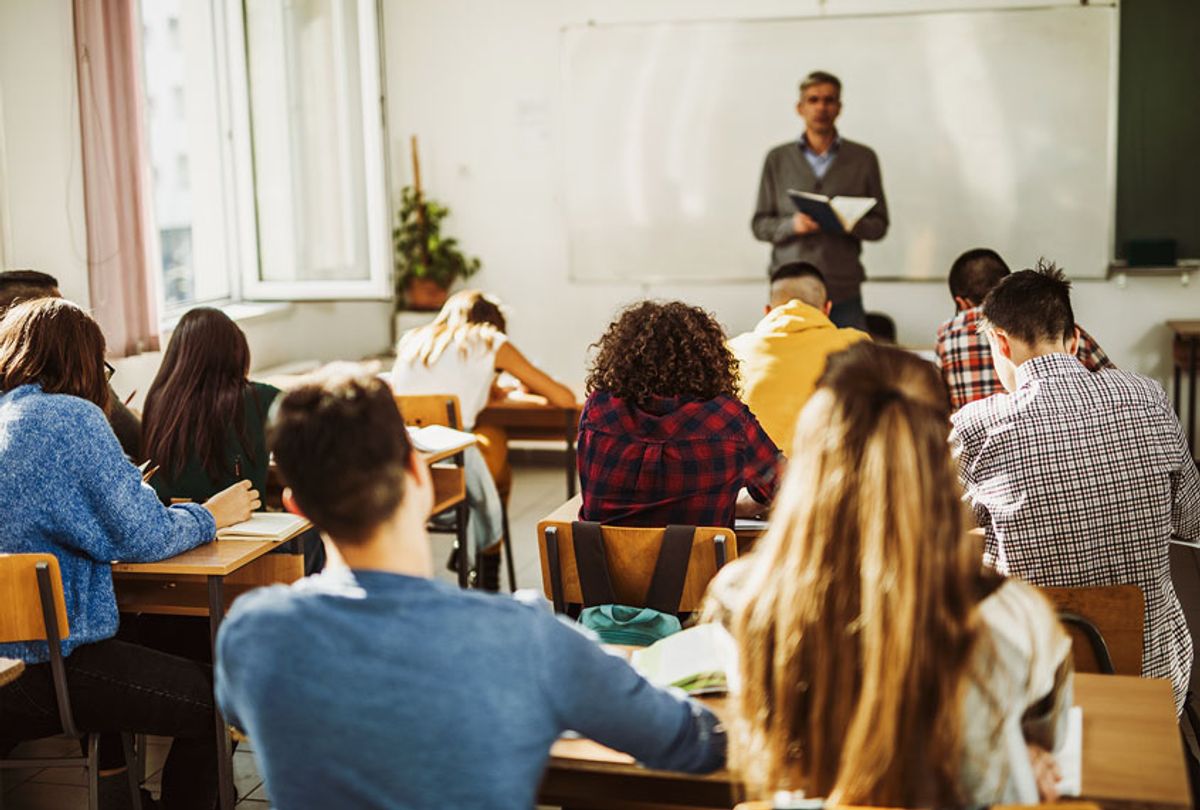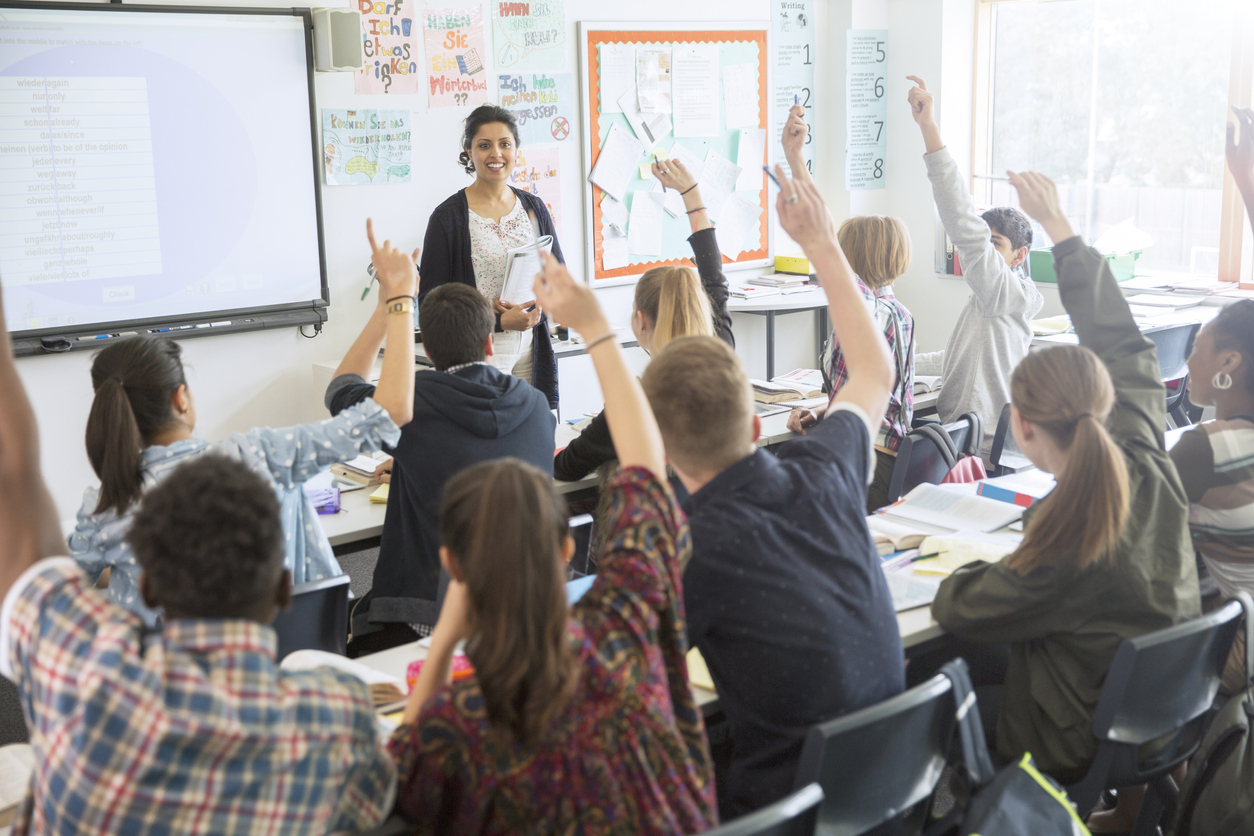Affordable Primary Science Tuition Singapore for All Learning Needs
Affordable Primary Science Tuition Singapore for All Learning Needs
Blog Article
Discovering the Various Mentor Techniques in Main Scientific Research Education And Learning Today
The landscape of primary scientific research education and learning is progressing, with various training strategies getting importance in modern classrooms. Inquiry-based discovering, hands-on experiments, and the assimilation of innovation are redefining how instructors involve young minds. Furthermore, collective methods and distinguished instruction are being used to accommodate the diverse demands of students, boosting both engagement and understanding. As we check out these approaches, inquiries arise regarding their efficiency and the ramifications for future instructional techniques. What might these shifts in strategy mean for the future generation of students?
Inquiry-Based Understanding
Inquiry-Based Discovering (IBL) is a pedagogical strategy that urges trainees to discover scientific concepts via wondering about, investigation, and hands-on experimentation. This technique stresses the function of trainees as energetic individuals in their knowing, promoting vital reasoning and analytic abilities. By involving with real-world questions, trainees become determined and interested, which boosts their understanding of scientific concepts.
In IBL, instructors act as facilitators, guiding trainees as they browse their inquiries as opposed to supplying details straight. This student-centered strategy permits for distinction, fitting various discovering styles and rates. Trainees establish skills in creating hypotheses, making experiments, and assessing information, which are vital for scientific proficiency.
In addition, IBL cultivates cooperation among pupils, urging them to share ideas and searchings for. This collective query advertises social skills and a feeling of neighborhood within the classroom. The procedure of inquiry encourages durability, as pupils discover to accept failure as a stepping rock toward understanding.
Hands-On Experiments
Hands-on experiments are an essential component of effective scientific research education and learning, matching the principles of inquiry-based discovering. These experiments permit pupils to engage directly with clinical principles, fostering a deeper understanding with experiential discovering. By adjusting products and observing end results, young students can understand abstract theories in tangible methods.
Such activities advertise important thinking and analytical abilities, as pupils hypothesize outcomes, conduct experiments, and assess results. This procedure encourages them to ask questions, fine-tune their understanding, and create a clinical way of thinking. Additionally, hands-on experiments can be tailored to varied discovering designs, ensuring that all trainees have the possibility to involve meaningfully with the web content.
Furthermore, hands-on experiments frequently motivate partnership among peers, promoting synergy and communication skills. Functioning in groups makes it possible for pupils to share concepts, discuss searchings for, and learn from one another, which enhances their overall instructional experience.
Including hands-on experiments right into the key science educational program not only enhances the finding out setting yet likewise cultivates a lifelong interest in science. By proactively taking part in their education and learning, pupils are much more likely to create an enthusiasm for scientific query that expands past the class.

Innovation Combination
Incorporating technology right into primary science education has ended up being progressively vital in fostering pupil interaction and improving finding out end results. The usage of electronic devices, such as interactive simulations, digital laboratories, and academic software, offers students with chances to explore scientific concepts in cutting-edge ways. These resources assist in a much deeper understanding of intricate topics by allowing students to picture and adjust variables that would be impractical in a traditional classroom setting.
Additionally, technology combination urges individualized discovering experiences. Pupils can progress at their own pace, reviewing difficult concepts through multimedia sources, which satisfy various knowing designs. This adaptability not just supports specific development yet additionally grows a feeling of freedom in learners.
In addition, innovation works as a bridge to real-world science, linking students with current study and professional contributions. Accessibility to scientific journals and on the internet databases widens students' point of views on scientific questions and promotes critical thinking skills.
Collaborative Discovering
Collective discovering plays an essential function in primary science education and learning by promoting team effort and interaction skills among pupils. This technique encourages learners to function together, share understanding, and take part in problem-solving, which enhances their understanding of scientific ideas. By joining group tasks, trainees discover to articulate their ideas, listen to diverse point of views, and discuss remedies, all of which are important skills in both scholastic and real-world contexts.

Research study suggests that joint understanding can bring about boosted motivation and involvement in science subjects, as pupils discover satisfaction in shared experiences (primary science tuition Singapore). Additionally, this method prepares pupils for future joint undertakings, furnishing them with the abilities necessary for reliable synergy in higher education and learning and specialist atmospheres. Inevitably, accepting collective learning in primary scientific research education and learning can considerably enhance the knowing experience and advertise a deeper understanding of scientific questions
Differentiated Direction

Differentiated direction can materialize in various methods, such as varying the material, procedures, or items of learning. For instance, instructors might make use of tiered jobs that give differing levels of intricacy, allowing trainees to operate at their corresponding readiness degrees. Additionally, versatile organizing techniques can assist in partnership among pupils with various capabilities, fostering peer understanding.
Assessment plays an essential duty in this technique, as it educates instruction and helps educators understand each pupil's special requirements. Developmental analyses, such as monitorings and quizzes, can lead educators in readjusting their approaches to improve learning end results. primary science tuition Singapore. Inevitably, by applying set apart instruction in key science education, teachers can grow an extra reliable and fair discovering setting, encouraging all trainees to Visit This Link reach their full capacity in comprehending clinical phenomena
Final Thought
In recap, the varied mentor strategies in main science education and learning, including inquiry-based learning, hands-on experiments, technology combination, collective understanding, and set apart guideline, collectively add to a more effective learning setting. These approaches advertise crucial reasoning, problem-solving skills, and a deeper understanding this of scientific ideas. By executing these strategies, educators can create interesting and encouraging classrooms that address the varied needs of pupils, eventually cultivating a lifelong interest in scientific research and boosting academic success.
Inquiry-Based Knowing (IBL) is a pedagogical technique that urges students to check out clinical principles with doubting, examination, and hands-on experimentation.Collective learning plays an essential duty in primary scientific research education and learning by fostering teamwork and interaction skills amongst pupils.Research study indicates that collective knowing can lead to enhanced motivation and engagement in science subjects, as pupils discover pleasure in shared experiences.In promoting a comprehensive discovering environment, differentiated instruction emerges as a vital technique to accommodate the varied requirements and abilities of pupils in main scientific research education. Eventually, by applying differentiated direction in key scientific research education and learning, teachers can cultivate a much more fair and effective knowing environment, encouraging all pupils to reach their complete potential in recognizing clinical phenomena.
Report this page